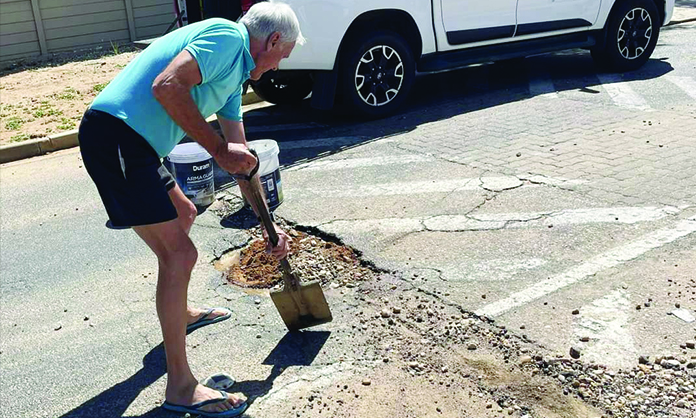Pensioner John Hopkins (73) has always been passionate about infrastructure.
Originally from Cape Town, Hopkins says he grew up in a normal, loving, middle-class family. He struggled at school and even failed mathematics in Standard 10 (Grade 12), but he says he was determined to succeed.
Despite the challenges, he managed to do some internship jobs with a consulting engineering company and then worked in various South African construction companies and local authorities, and was regularly motivated to pursue his studies.
“I started with a four-year technical diploma and then went on to obtain a masters degree in engineering management at the University of Cape Town. I worked well with the South African government and was regularly asked to help with self-help housing projects that were very successful. The projects motivated a lot of families that now own their own houses. It resulted in housing programmes internationally and one of the largest self-help projects I managed was recognised by the United Nations,” he says.
Hopkins, whose wife is Namibian, returned with his family to Namibia eight years ago and has since been living at Swakopmund.
“A large area on the beachfront named Fitness Park was just a sandy wasteland, so I asked the municipality if I may start a garden. With their permission and their valuable support, I was able to lay out a garden and plant 100 palm trees,” says Hopkins.
He also joined the Swakopmund Residents Association five years ago.
The retired engineer from Swakopmund regularly travels to Windhoek to visit his two sons and other family members.
He says he noticed that there were an increasing number of potholes appearing in Windhoek streets, especially on important roads like Plato Street in Academia, which is one of the bus routes to the University of Namibia.
“I was getting concerned that the number of potholes were increasing every time that I visited. These potholes cause damage to motorcar tyres. I see drivers swerving to avoid them. I felt that someone had to do something and that it might as well start with me.
I, therefore, drove to a spot on the other side of town where I saw sand and gravel and loaded it in my car. I started to fill up potholes in Academia.
“Instead of sitting back and complaining about it, someone has to start something,” he says.
He believes that people with past experience are needed to team up and work on projects that can benefit towns in the country.
Hopkins says maintaining basic infrastructure like roads, water supply networks and basic infrastructure for housing is important for future generations, before spending millions on new projects.
“It is much more cost effective to act quickly to rectify problems and save on wasteful expenditure. It is everybody’s responsibility to make sure that Namibia remains the best country in Africa,” he says.
Hopkins adds that Swakop residents often submit complaints and issues to the municipality, like broken pipes, water leaks, damaged kerbs, potholes and broken sign posts.
He commended the municipality for being proactive, by implementing regular maintenance and repair work.
Hopkins says he is concerned about the entire country and does not do the repairs to shame others, but to help.
“I desire for us to all work together and develop the country. It is not because I want to boast. I recently helped to build a school at Swakopmund. I still have a lot of energy. I still run 5km every morning and do the park run on Saturdays.
“Many people sit back and do nothing but complain. Talk is cheap. I did not complain. I decided to do it. If rain comes, I will fill it up again. Some people drove past and said good job. They were positive. It is good if we can be kind and motivate each other to work together.”
Stay informed with The Namibian – your source for credible journalism. Get in-depth reporting and opinions for
only N$85 a month. Invest in journalism, invest in democracy –
Subscribe Now!










